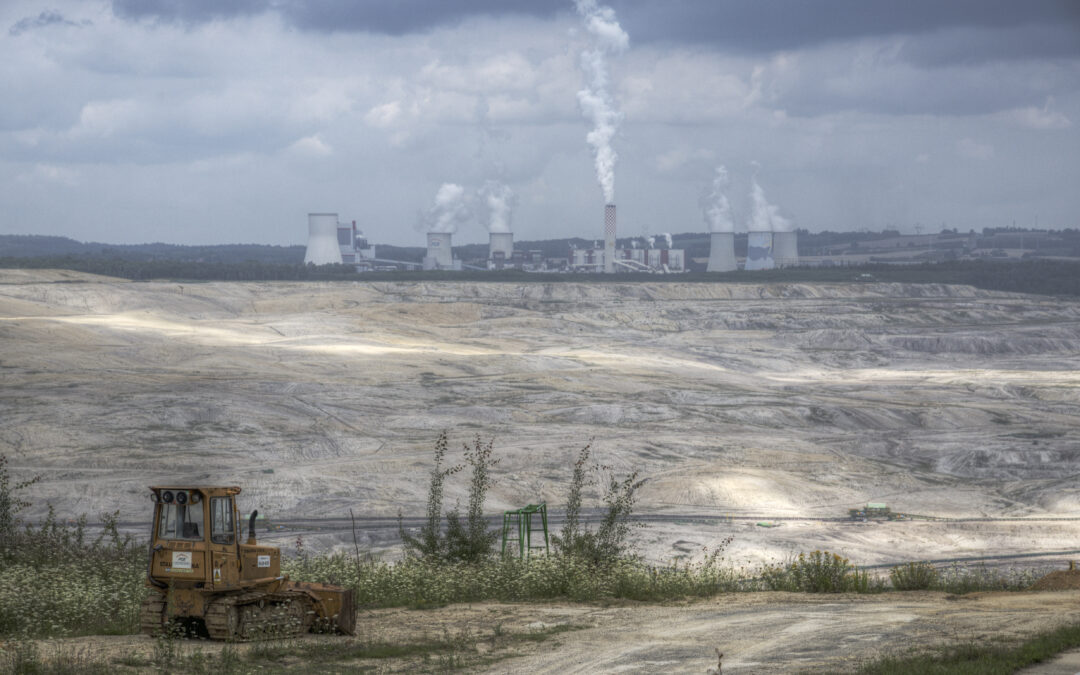Poland has moved to dismiss its ambassador to the Czech Republic, Mirosław Jasiński, just two months after he was appointed. The decision was made after Jasiński gave an interview in which he criticised the Polish side’s handling of an ongoing dispute with Prague over a coal mine on their border.
A Polish government spokesman said that the ambassador’s remarks – which included accusing the Polish authorities of “arrogance” – had been “extremely irresponsible”. But Jasiński says that he “does not regret” what he said and urged the two countries to resolve their spat over the Turów mine.
Jasiński was nominated as envoy to Prague in early November and presented his credentials to Czech president Miloš Zeman on 20 December. That ended a long period without any ambassador in place, after his predecessor, Barbara Ćwioro, was dismissed in June 2020 amid allegations she had bullied employees.
His arrival came after the Czech government had, earlier in the year, launched an unprecedented legal action against Poland at the Court of Justice of the European Union (CJEU).
That resulted in the CJEU ordering Poland to close down the Turów coal mine. Warsaw has refused to do so, and is receiving daily fines of €500,000 as a result (which it has so far declined to pay).
In an interview with German public broadcaster Deutsche Welle published yesterday, Jasiński criticised the Polish side for its “lack of empathy” and “lack of will to engage in dialogue” to resolve the dispute with the Czechs.
“Let’s be honest and admit that the reason for the dispute was the arrogance of certain people. Mainly from the mine’s management. Then there is the management of PGE [the mine’s owner], and, light years further on, ministries and the prime minister,” Jasiński told Deutsche Welle.
He said that by now an amicable resolution would be achievable “during one meeting at the level of environment ministries”. He noted that the Czechs were busy with internal politics following parliamentary elections in late 2021, which has made meetings difficult to arrange.
"The rule of law is being violated in both" Poland and Hungary, says the Czech EU affairs minister.
This has "weakened cooperation" in the Visegrad group, which is now "more like Poland and Hungary versus the Czech Republic and Slovakia", he adds https://t.co/THjmtmVLDh
— Notes from Poland 🇵🇱 (@notesfrompoland) January 5, 2022
In response to the interview, Polish government spokesman Piotr Müller announced yesterday evening that the prime minister, Mateusz Morawiecki, had already “decided to start the procedure of dismissing the Polish ambassador to the Czech Republic”.
“Every Polish diplomat has a duty to look after Polish interests,” wrote Müller. “There is no consent to the extremely irresponsible statements about the mine in Turów.”
Jacek Sasin, a deputy prime minister who heads the ministry of state assets, said that it “should be expected” of a Polish envoy to “first gain knowledge and learn the facts when speaking on such key issues”.
“Thoughtless repetition of foreign narratives is detrimental to Poland’s interests,” tweeted Sasin. Janusz Kowalski, an MP from the ruling camp, suggested that the interview amounted to “diplomatic treason” and demanded Jasiński’s resignation.
Od osoby, która reprezentuje Polskę zagranicą należy oczekiwać, że wypowiadając się, w tak kluczowych sprawach jak Turów, najpierw pozyska wiedzę i pozna fakty. Bezrefleksyjne powielanie obcej narracji szkodzi interesom Polski.
— Jacek Sasin (@SasinJacek) January 6, 2022
Speaking to Onet, Jasiński said that he did “not regret” his words. He said that the Turów case “should be dealt with at the level of experts” rather than high-ranking politicians and the EU court. “My dismissal will not change that,” he said.
Onet claims that an unnamed high-ranking Czech diplomat described the situation as “tragicomic”. He said that Prague had waited “a year and a half” for a new Polish ambassador, only to see him dismissed “after just over two months”.
“We find out about it [the decision] not from the Polish Ministry of Foreign Affairs, but from Onet,” he told the Polish news site. “We hope that we will not wait very long for the new ambassador again”.
Main image credit: Petr Vodička/Wikimedia Commons (under CC BY-SA 4.0)

Maria Wilczek is deputy editor of Notes from Poland. She is a regular writer for The Times, The Economist and Al Jazeera English, and has also featured in Foreign Policy, Politico Europe, The Spectator and Gazeta Wyborcza.




















